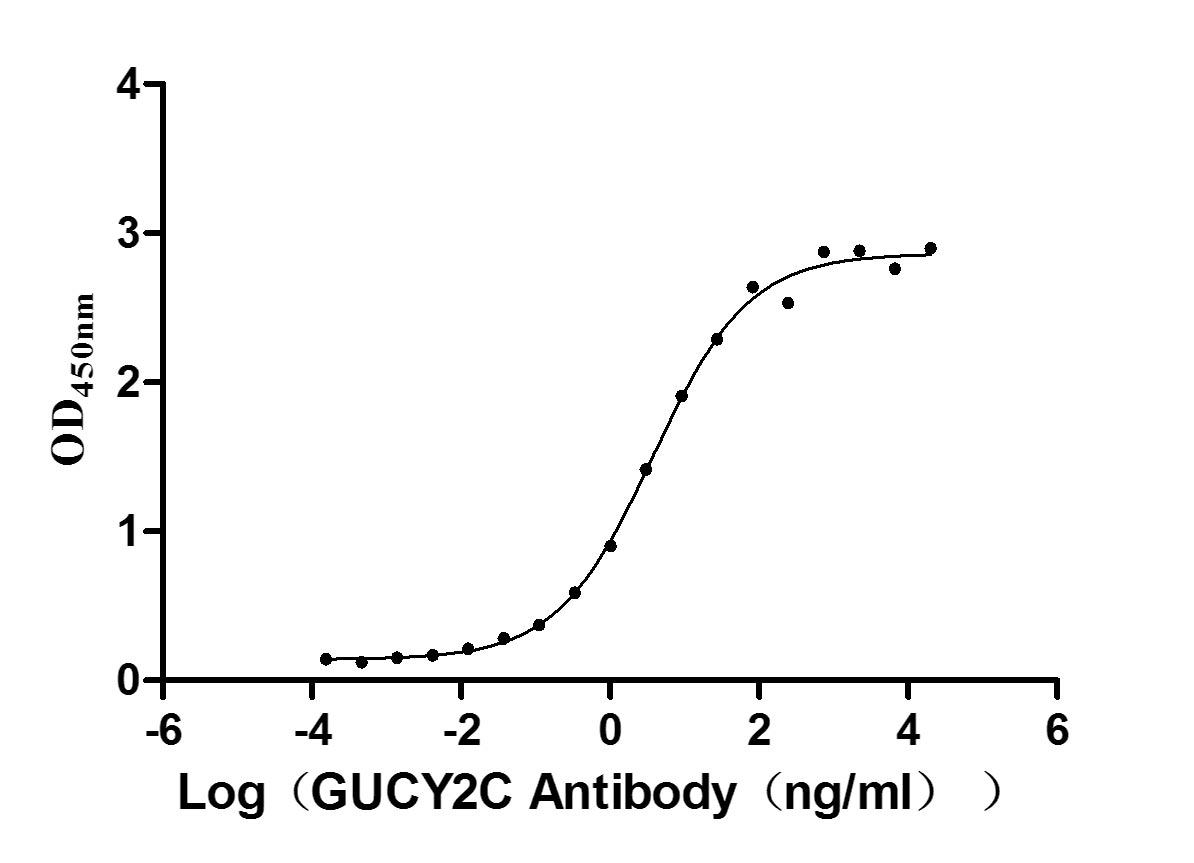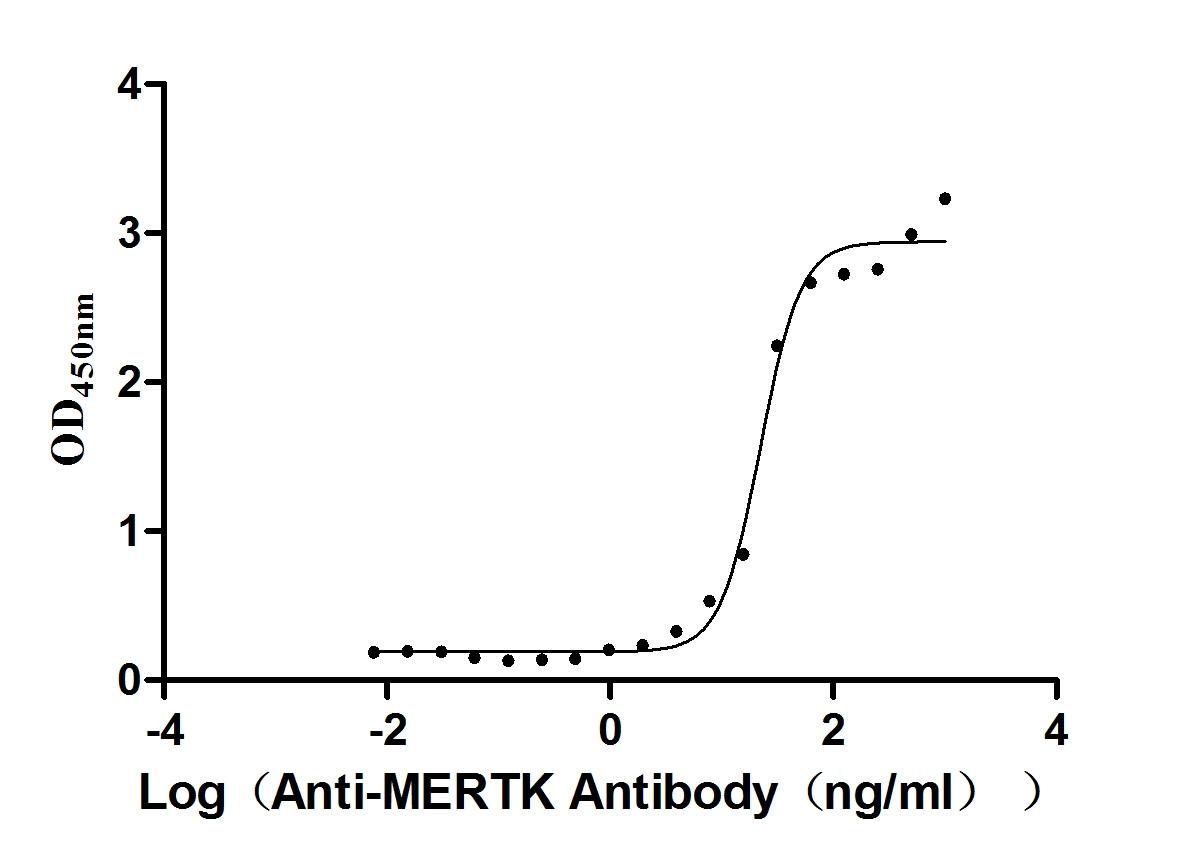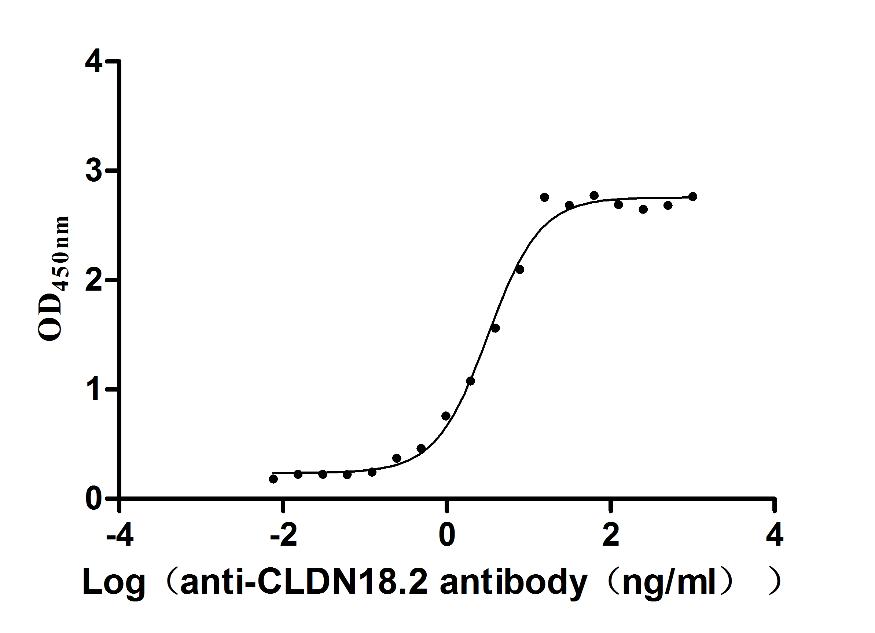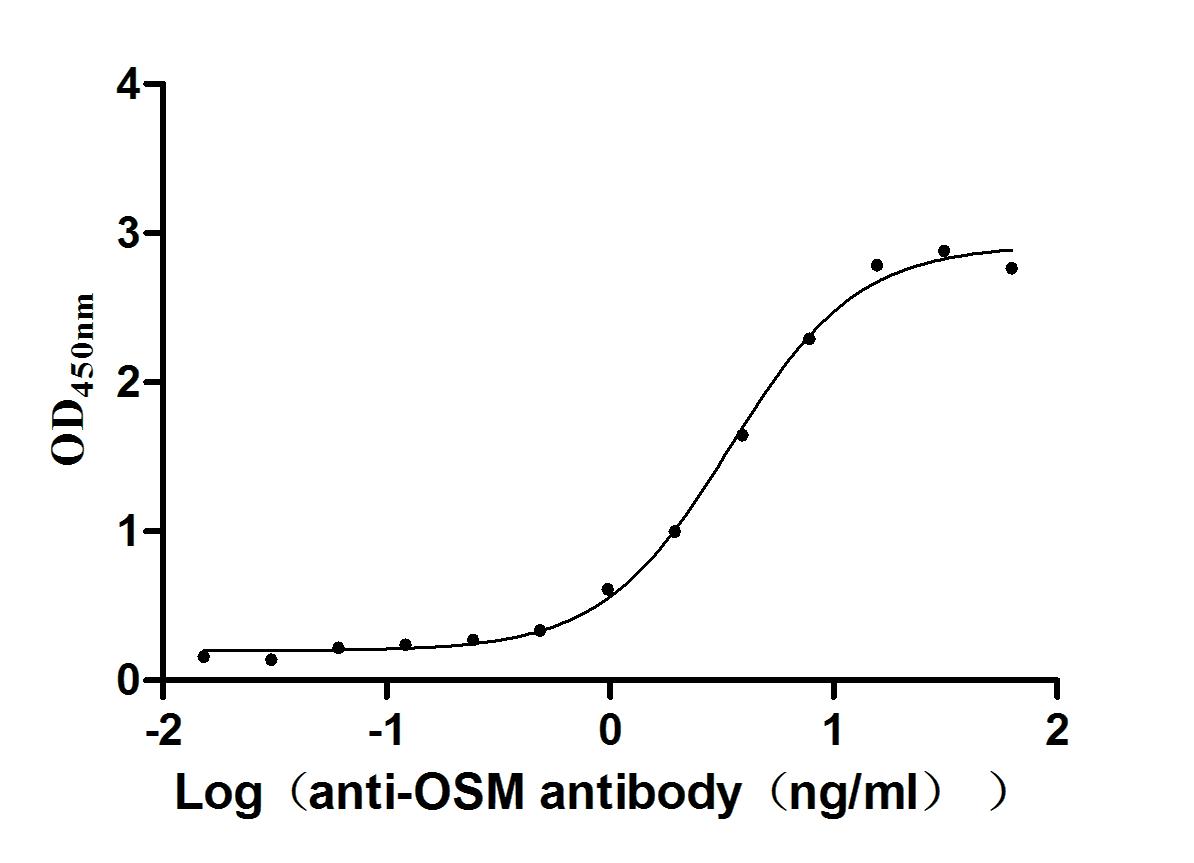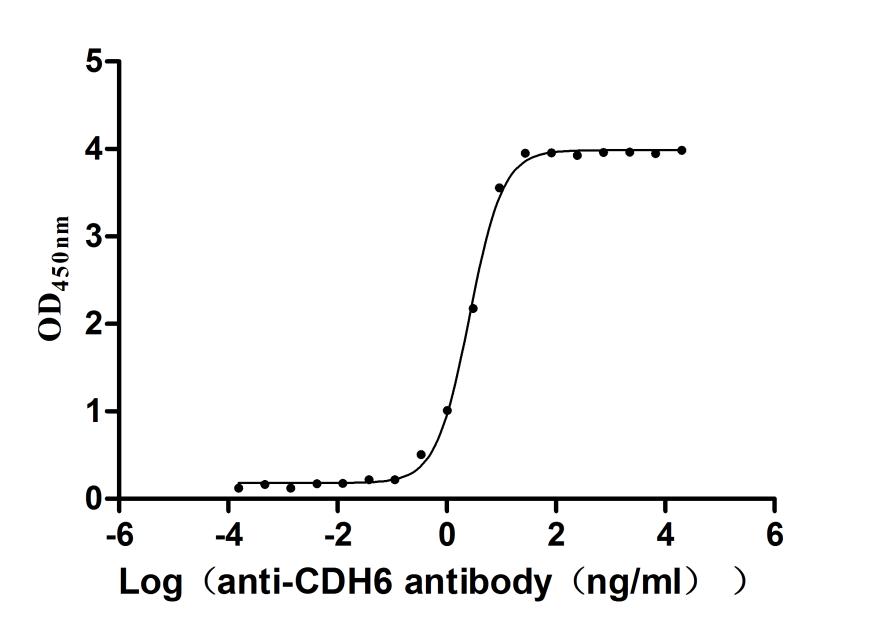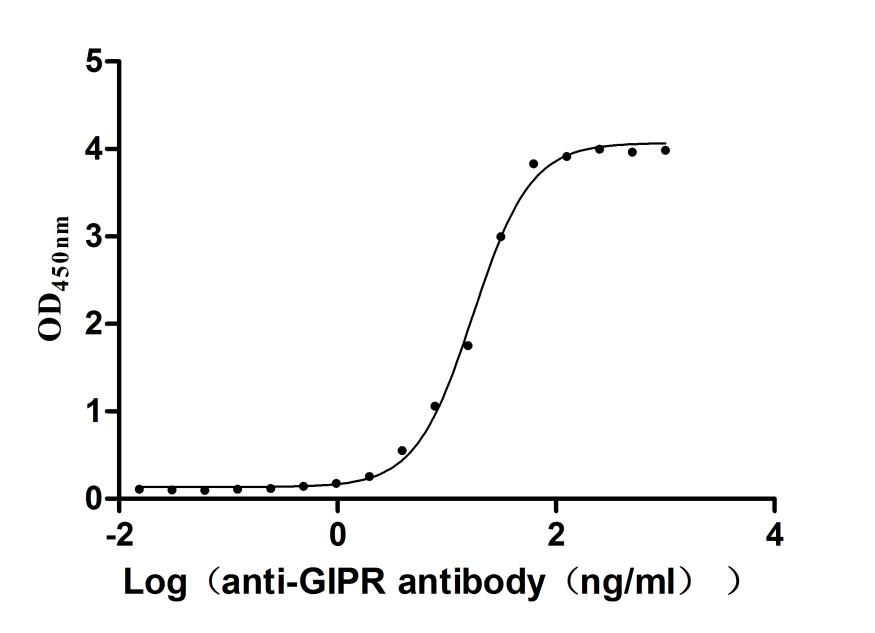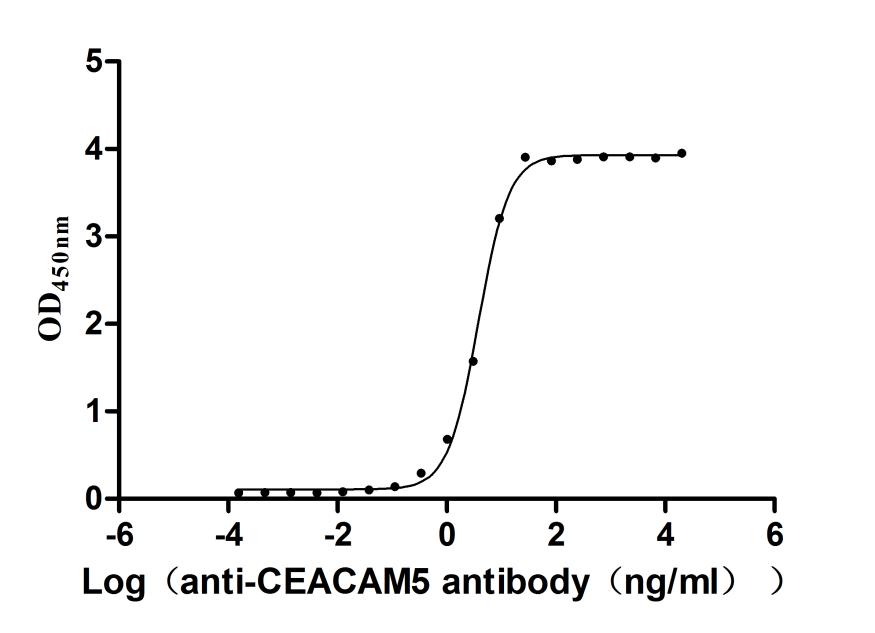Recombinant Rat CCN family member 1 (Ccn1)
-
货号:CSB-YP863670RA
-
规格:
-
来源:Yeast
-
其他:
-
货号:CSB-EP863670RA-B
-
规格:
-
来源:E.coli
-
共轭:Avi-tag Biotinylated
E. coli biotin ligase (BirA) is highly specific in covalently attaching biotin to the 15 amino acid AviTag peptide. This recombinant protein was biotinylated in vivo by AviTag-BirA technology, which method is BriA catalyzes amide linkage between the biotin and the specific lysine of the AviTag.
-
其他:
-
货号:CSB-BP863670RA
-
规格:
-
来源:Baculovirus
-
其他:
-
货号:CSB-MP863670RA
-
规格:
-
来源:Mammalian cell
-
其他:
产品详情
-
纯度:>85% (SDS-PAGE)
-
基因名:Ccn1
-
Uniprot No.:
-
别名:Ccn1; Cyr61; Igfbp10CCN family member 1; Cellular communication network factor 1; Cysteine-rich angiogenic inducer 61; Insulin-like growth factor-binding protein 10; IBP-10; IGF-binding protein 10; IGFBP-10; Protein CYR61
-
种属:Rattus norvegicus (Rat)
-
蛋白长度:Full Length of Mature Protein
-
表达区域:25-379
-
氨基酸序列TCPAAC HCPLEAPKCA PGVGLVRDGC GCCKVCAKQL NEDCSKTQPC DHTKGLECNF GASSTALKGI CRAQSEGRPC EYNSRIYQNG ESFQPNCKHQ CTCIDGAVGC IPLCPQELSL PNLGCPNPRL VKVSGQCCEE WVCDEDSIKD SLDDQDDLLG FDASEVELTR NNELIAIGKG SSLKRLPVFG TEPRVLYNPL HAHGQKCIVQ TTSWSQCSKS CGTGISTRVT NDNSECRLVK ETRICEVRPC GQPVYSSLKK GKKCSKTKKS PEPVRFTYAG CSSVKKYRPK YCGSCVDGRC CTPLQTRTVK MRFRCEDGEM FSKNVMMIQS CKCNYNCPHP NEASFRLYSL FNDIHKFRD
-
蛋白标签:Tag type will be determined during the manufacturing process.
The tag type will be determined during production process. If you have specified tag type, please tell us and we will develop the specified tag preferentially. -
产品提供形式:Lyophilized powder
Note: We will preferentially ship the format that we have in stock, however, if you have any special requirement for the format, please remark your requirement when placing the order, we will prepare according to your demand. -
复溶:We recommend that this vial be briefly centrifuged prior to opening to bring the contents to the bottom. Please reconstitute protein in deionized sterile water to a concentration of 0.1-1.0 mg/mL.We recommend to add 5-50% of glycerol (final concentration) and aliquot for long-term storage at -20℃/-80℃. Our default final concentration of glycerol is 50%. Customers could use it as reference.
-
储存条件:Store at -20°C/-80°C upon receipt, aliquoting is necessary for mutiple use. Avoid repeated freeze-thaw cycles.
-
保质期:The shelf life is related to many factors, storage state, buffer ingredients, storage temperature and the stability of the protein itself.
Generally, the shelf life of liquid form is 6 months at -20°C/-80°C. The shelf life of lyophilized form is 12 months at -20°C/-80°C. -
货期:Delivery time may differ from different purchasing way or location, please kindly consult your local distributors for specific delivery time.Note: All of our proteins are default shipped with normal blue ice packs, if you request to ship with dry ice, please communicate with us in advance and extra fees will be charged.
-
注意事项:Repeated freezing and thawing is not recommended. Store working aliquots at 4°C for up to one week.
-
Datasheet :Please contact us to get it.
相关产品
靶点详情
-
功能:Promotes cell proliferation, chemotaxis, angiogenesis and cell adhesion. Appears to play a role in wound healing by up-regulating, in skin fibroblasts, the expression of a number of genes involved in angiogenesis, inflammation and matrix remodeling including VEGA-A, VEGA-C, MMP1, MMP3, TIMP1, uPA, PAI-1 and integrins alpha-3 and alpha-5. CCN1-mediated gene regulation is dependent on heparin-binding. Down-regulates the expression of alpha-1 and alpha-2 subunits of collagen type-1. Promotes cell adhesion and adhesive signaling through integrin alpha-6/beta-1, cell migration through integrin alpha-1/beta-5 and cell proliferation through integrin alpha-v/beta-3.
-
基因功能参考文献:
- Compared with wild rats, Cyr61 was overexpressed in the lung tissue, pulmonary arterial and PASMCs in PAH rats. Exogenous recombinant Cyr61 protein promoted the proliferation of PASMCs in a dose-dependent manner. While the expression of Cyr61 in PASMCs was inhibited by specific siRNA, cell proliferation was restrained and the expression of p-AKT declined PMID: 28824319
- the matricellular protein CCN1 gene transfer induces hepatic stellate cell apoptosis through endoplasmic reticulum stress and unfolded protein response PMID: 26515130
- Cyclic AMP-induced actin-cytoskeleton remodelling regulates expression of CCN1 through MKL1. PMID: 25446180
- These findings implicate CCN1 as a mediator of cardioprotection induced by G-protein coupled receptor agonists that activate RhoA/MRTF-A signaling. PMID: 25106095
- In line with dermal fibrosis and scar formation, CCN1/CYR61 is involved in liver injury repair and tissue remodeling. CCN1/CYR61 gene transfer into extracellular matrix-producing liver cells is therefore potentially beneficial in liver fibrotic therapy PMID: 24487063
- Muscle progenitor cells treated with aging rodent serum caused CCN1 mRNA to increase by seven fold. PMID: 24196529
- Report assays with site-direct mutation analysis of CYR61/CCN1 promoter demonstrated that MRTF-A transactivated CYR61/CCN1 promoter mainly depending on CArG box. PMID: 23624342
- Degradome products of the matricellular protein CCN1 as modulators of pathological angiogenesis in the retina. PMID: 23798676
- Cyr61, an angiogenic factor with previously unknown neuronal function, is a novel regulator of dendritic growth. PMID: 23362279
- CYR-61 is important in the pathogenesis of rheumatoid arthritis, and SIRT-1/FoxO3a signaling is crucial to induction of CYR-61 in synovial fibroblasts. PMID: 23239110
- Endogenous CCN1 regulates proliferation of VSMCs and neointimal hyperplasia. Inhibition of CCN1 may provide a promising strategy for the prevention of restenosis after vascular interventions [CCN1]. PMID: 18388330
- Galpha(12/13) regulate AP-1-dependent CYR61 induction in vascular smooth muscle, promoting migration, and they are upregulated with CYR61 in arteriosclerotic lesions. PMID: 21212405
- Suggest that CCN1, from the microenvironment of injured vessels, enhances reendothelialization via a direct action on endothelial progenitor cell differentiation, revealing a possible new mechanism underlying the process of vascular repair. PMID: 20830586
- Cyr61 induces a reversible epithelial-mesenchymal transition in gastric epithelial cells. PMID: 20458273
- CYR61 is synthesized in arterial smooth muscle walls during proliferative restenosis PMID: 11897702
- induction of cyr61 is important for neuronal cell death in the central nervous system hippocampal progenitor cells, and JNK activation, but not of p38, as well as the subsequent SRF phosphorylation are involved in cyr61 gene induction PMID: 12576482
- after severe glomerular damage in anti-Thy-1 glomerulonephritis, Cyr61 may be involved in glomerular remodeling as a factor secreted from podocytes to inhibit mesangial cell migration. PMID: 12707386
- Overexpression of the cyr61 gene in stably transfected rat SMC (smooth muscle cells) line A7r5 inhibited the proliferation and DNA and protein synthesis. Cyr61 can also act as a growth inhibitor in SMC of genetically hypertensive rats. PMID: 12861037
- In a rat balloon carotid arterial injury model, CYR61 was rapidly induced in VSMCs in the early stage of injury and remained elevated until 14 days. PMID: 17234971
- The dissimilar growth characteristics between high and low Cx43 expressors may be due to differential regulation of CCN3 by varying levels of Cx43 PMID: 18004727
- Data suggest that matrix protein CCN1 may play an important role in microenvironment-mediated biological properties of endothelial progenitor cells . PMID: 18755182
- THBS1, Cyr61 and CTGF were all over-expressed in esophageal squamous cell carcinoma. PMID: 19698122
- Cyr61 is an early marker of extracellular matrix remodeling in rat bladder cells PMID: 12217894
显示更多
收起更多
-
亚细胞定位:Secreted.
-
蛋白家族:CCN family
-
数据库链接:
KEGG: rno:83476
STRING: 10116.ENSRNOP00000019501
UniGene: Rn.22129
Most popular with customers
-
Recombinant Human Heat-stable enterotoxin receptor (GUCY2C), partial (Active)
Express system: Mammalian cell
Species: Homo sapiens (Human)
-
Recombinant Mouse Tyrosine-protein kinase Mer (Mertk), partial (Active)
Express system: Mammalian cell
Species: Mus musculus (Mouse)
-
Recombinant Macaca fascicularis Claudin (CLDN18)-VLPs (Active)
Express system: Mammalian cell
Species: Macaca fascicularis (Crab-eating macaque) (Cynomolgus monkey)
-
Recombinant Human Desmoglein-3 (DSG3), partial (Active)
Express system: Baculovirus
Species: Homo sapiens (Human)
-
Recombinant Human Oncostatin-M (OSM), partial (Active)
Express system: Mammalian cell
Species: Homo sapiens (Human)
-
Recombinant Human Cadherin-6(CDH6),partial (Active)
Express system: Mammalian cell
Species: Homo sapiens (Human)
-
Recombinant Human Gastric inhibitory polypeptide receptor(GIPR),partial (Active)
Express system: Mammalian cell
Species: Homo sapiens (Human)
-
Express system: Mammalian cell
Species: Macaca mulatta (Rhesus macaque)


